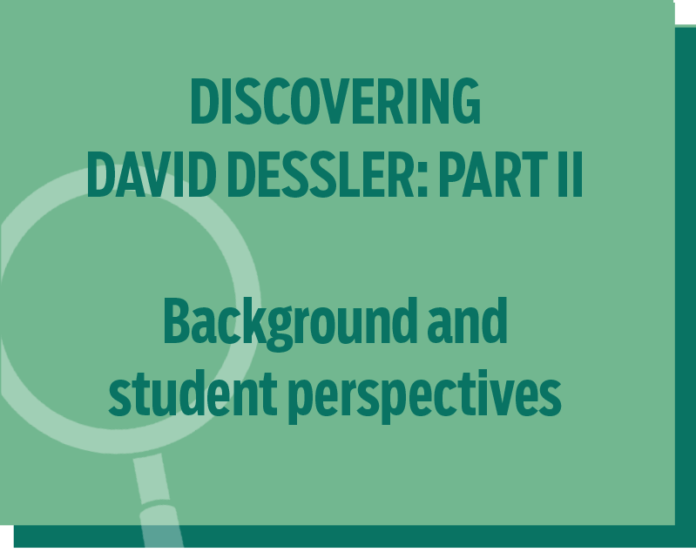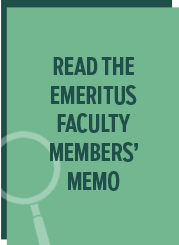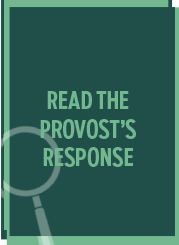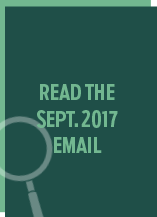*NOTE: This is the second segment in a series on former professor David Dessler. It describes events that occurred between Oct. 26, 2015, when Dessler was placed on medical leave, and December 2017, when he filed a discrimination lawsuit against the College. Future installments will provide an in-depth look at issues ranging from Dessler’s proposed student-faculty mental health initiative to the College administration’s handling of his case. Visit SoundCloud to hear the podcast version of this series.

By Meilan Solly
In the roughly two years since former government professor David Dessler was placed on medical leave, he has been arrested five times, spent 77 days in jail and officially resigned from his tenured position at the College of William and Mary.
This series of events, which began with Dessler’s 1984 hiring and culminated in a stream of cryptic emails sent to students, faculty and administrators (see part one), precipitated the unexpected end of a decorated professor’s teaching career and has raised questions regarding the College’s approach toward mental health issues. According to court documents, Dessler, who had previously been diagnosed with major depression, views his “continued arrest and harassment by the College” as retaliation for his proposed creation of a student-faculty mental health initiative in September 2015.
Oct. 26, 2015, students in Dessler’s sections of Introduction to International Politics and Theories of the International System received an email from department chair John McGlennon, who reported that Dessler had been placed on administrative leave and would be replaced by a new instructor.
Two days later, Dessler emailed students saying he had not been informed of this development. However, during a Nov. 2 phone conversation with Provost Michael Halleran, he agreed to take leave under the Family and Medical Leave Act, citing grief and fatigue following the recent death of his sister and ongoing divorce settlement.
According to a Nov. 5 note from Dessler’s psychiatrist, his “grief, difficulty with focus and maintaining routine” were apparent from Oct. 6 and would likely persist until March 1, 2016.

Jan. 26 and 27, 2016, Dessler communicated with College officials regarding the end of his medical leave. In response, Chief Human Resources Officer John Poma informed Dessler that the College would not allow him to return to work until he submitted a physician recertification form. Once this form had been received, the College could also require Dessler to undergo an independent medical examination.
Feb. 28, Dessler was arrested by the William and Mary Police Department after allegedly sending threatening emails to McGlennon. The messages came from an anonymous account and included passages such as “Let the terror begin!” and “You’ll stop laughing soon, I guarantee it.”
Less than a month later, March 18, Dessler was arrested for a second time after sending an email to several College officials. According to court documents, this second arrest stemmed from Dessler’s alleged violation of the state’s cyber-stalking statute and resulted in strict limits being placed on his ability to communicate with College students, faculty and administrators. March 24, Poma contacted Dessler regarding his medical leave.
“We realize that these past few weeks and months have been difficult for you,” Poma wrote in the letter. “The university is taking the unusual step of extending your period of paid medical leave because of our sincere interest and hope that you have access to care to enable your return.”

Over the next three months, Dessler remained on leave. He was arrested twice more, first for missing a bond hearing (May 11) and next for responding to former students seeking career advice, thereby violating his ban on contact with individuals connected to the College (June 22).
At the end of July, Dessler contacted Poma to discuss the approaching end of his second leave. Citing Poma’s March 24 letter, he said he had sought medical care and intended to resume full-time teaching during the fall 2016 semester.
In response, Poma stated that Dessler would not be able to return from leave until the College received “documentation from a qualified medical provider that you are able to resume your duties and perform the essential functions of your job and/or that you do not pose a direct threat of harm to yourself or others.” If Dessler could not provide a Family and Medical Leave return-to-work certification, his period of paid leave would end Aug. 9.
Despite continued communication between Poma and Dessler, including a July 27 letter in which Dessler said he would “work to come up with yet another proposal to start a dialogue” and an Aug. 8 email in which Poma outlined Dessler’s options (do nothing, apply for long-term disability, retire, resign or seek to return to work), Dessler’s leave ended Aug. 9 without concrete plans for moving forward. He retained tenure, but his employee status was listed as “inactive.” Within two weeks, his pay, insurance benefits and College email access ended. In an Aug. 10 email to Poma, Dessler characterized the change in his employment status as “termination.”
“The university dismissed a tenured professor with an excellent 32-year record without anything close to adequate cause or due process,” he added. “…I would therefore respectfully request that the required corrective action be taken immediately.”
Sept. 8, three emeritus faculty members — former Provost P. Geoffrey Feiss, Chancellor Professor of English Emeritus Terry Meyers and Chancellor Professor of Sociology Kate Slevin — addressed the provost and Faculty Assembly in a letter arguing that Dessler had been terminated without a hearing, in direct violation of the Faculty Handbook and his due process rights.
“In all our years of service at the College, these actions constitute the most egregious evisceration of the Faculty Handbook that we have seen and indeed could imagine,” the emeritus faculty wrote.
In an interview with The Flat Hat, Feiss said he took action in hopes of preserving fundamental faculty rights.
“This was essentially throwing out the Faculty Handbook and the principles and procedures that had been worked on for a long period of time as a contract between the faculty and the administration,” he added.
In response, Halleran sent a memo to the Arts & Sciences Faculty Affairs Committee, the Faculty Assembly Executive Committee and the Faculty Assembly Faculty Affairs Committee. He copied individuals including College President William Taylor Reveley, University Counsel Deborah Love and the three emeritus faculty members who had sent the Sept. 8 letter.
Halleran denied the emeritus faculty members’ claims (citing Dessler’s retained tenure) and stated that Dessler was ineligible for a hearing.
“I was very disappointed to read the memo you and others received,” he wrote. “…The allegations made in this memo, if true, would indeed be alarming. None of them however, is true.”
Jan. 13, 2017, Dessler was arrested by WMPD for the fifth time after sending emails to McGlennon and various College officials, including Love.
One email described the university counsel of an unidentified college being “strung up and strangled by the neck and she is choking and grasping for breath.”
The email continued, “‘the Mentally Ill Winner who Put These Losers to Death’ will be watching the pain, knowing that both victims, whoever they are, are swinging back and forth, wishing they could do something, anything, but they are now dead, forever, and humiliated.”
Unlike the previous four charges, which were all dropped, the January 2017 charge went to trial in May. In a letter to Judge Charles Maxfield, who presided over the case, Feiss wrote that Dessler was “incapable of any physical harm to another human being. … This unconscionable incarceration for presumed mental illness [is] deeply troubling.” Ultimately, Maxfield deferred making a decision on the case until May 2019.
June 18, Dessler officially resigned from his tenured position, writing that he felt this was the only way to avoid continued arrest and harassment by the College.
Sept. 28, the Equal Employment Opportunity Commission closed an investigation into Dessler’s claim of discrimination by the College. In its “Dismissal and Notice of Rights Memo,” the EEOC said it had been unable to conclude that the information obtained violated given statutes.
The memo continued, however, to explain “this does not certify that the respondent is in compliance with the statutes. No finding is made as to any other issues that might be construed as having been raised by this charge.”
Dec. 27, Dessler filed a discrimination lawsuit against the College. According to the Sept. 28 EEOC memo, the commission’s dismissal of the case gave him the right to file this suit.
In the complaint, Dessler alleged that the College violated his First Amendment right to free speech, declined to grant due process protections associated with termination and failed to provide reasonable accommodation for a disclosed mental disability. Dessler further claimed that the College’s actions stemmed from his proposed creation of a joint student-faculty mental health initiative.
The day Dessler filed his claim marked 798 days since the Oct. 21, 2015, email that resulted in WMPD removing him from campus. The last time he had met with students in person, Oct. 26, 2015, was 793 days ago. Dessler had spent 77 of these 798 days in jail, including 45 on charges that were later dropped.
![]()
By Sarah Smith
When former government professor David Dessler decided to go on paid medical leave in November 2015, it was not clear to his students what the next steps would be. Some worried they would not receive credit for the class, while others worried that he would not return in time to be their major adviser.
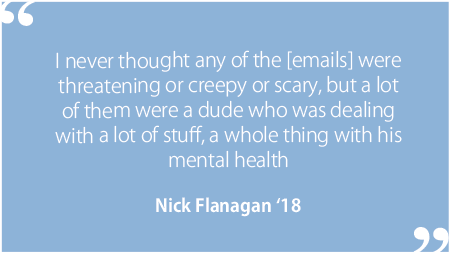
One thing his former students did not expect was that the series of cryptic emails that began Oct. 21, 2015, would continue until he filed his lawsuit in December 2017. As one student, Jonathon Skavroneck ’19 said, the events of that first semester were “bizarre.”
Although the barrage of emails initially slowed down when Dessler went on medical leave, they picked back up in February 2016, when Dessler was arrested for allegedly sending “threatening” emails from a Tor-based email provider, which allows for anonymous communication. WMPD determined that these emails were from him because of references to Star Trek, a franchise of which he was a known fan.
In March 2016, Dean of Arts and Sciences Kate Conley emailed the students in his Introduction to International Politics class, addressing an email that some received from the same Tor-based provider.
In reflecting on the events of his sophomore year, Nick Flanagan ’18 said the College did not do enough to inform students about what was going on. He said that he and his peers mostly received Dessler’s side of the story through his frequent emails, but had little context for the legal matters, including his arrests, which Dessler discussed.
Flanagan said that he was unsure what to do at the time, although he was aware that some of his peers were discussing the emails on social media. In retrospect, he said that any action he took would have been to support Dessler, whom he saw as an intelligent and respectable professor. Flanagan also said that he was hoping to take another class with him in spring 2016.
“I never thought any of them were threatening or creepy or scary, but a lot of them were a dude who was dealing with a lot of stuff, a whole thing with his mental health,” Flanagan said. “In the context of the situation, it was super weird. If somebody wrote [the emails] as a post on a blog, you’d read that and be like ‘I am super understanding of that’ but in that context, it was like, what the hell is going on?”
The last time Flanagan received an email from Dessler was late 2017.
“I received like six emails that day … these ones were much more reasonable [than those from October 2015],” Flanagan said. “These ones are weird in the context that it had been so long, I almost forgot about this. It’s two years later, I had forgotten about all that. I think he was told not to interact with us in any way. I don’t think it was fair to do that.”
Skavroneck also said that he read the emails, but did not further engage with them.
“They didn’t evoke any strong emotions in me, other than memories of what happened that fall,” Skavroneck said. “I wasn’t too concerned about them either. I considered forwarding them to college administration, but [decided] against it because they were harmless messages that we could all just ignore.”
Both Flanagan and Skavroneck remember Dessler discussing the campus’s climate relating to mental health — and Flanagan said that many of the problems Dessler described are ones that he too perceives as affecting students.
According to Flanagan, Dessler would often relate psychiatry to real-world lessons. Flanagan said that one of his biggest takeaways was that something unexpected, like Dessler’s sister dying from cancer, could happen at any moment.
Flanagan said that Dessler also identified problems at the College, and asked students to share their experiences with heavy workloads and busy exam periods. Flanagan said that a few years later, he still believes students at the College are not equipped to handle exam weeks.
Skavroneck said that he remembers Dessler discussing mental health, and that he believes Dessler wanted to promote discussion about the stigma surrounding mental health.

